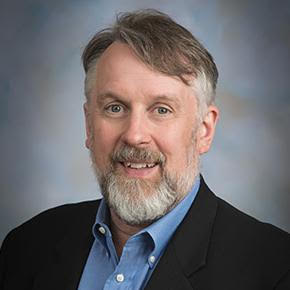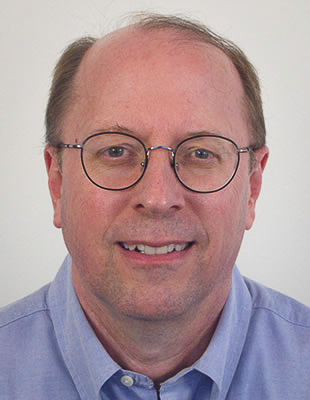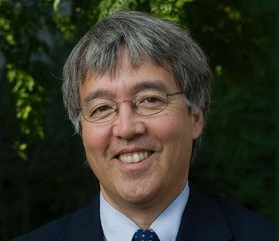
Henning Schulzrinne
speaker
Henning Schulzrinne architects, designs, models, and evaluates Internet protocols and applications, with a particular focus on real-time and embedded applications. He has been working on voice-over-Internet protocols that now power voice communications for modern mobile phones, enterprise, consumer, and public safety applications. From 2010 through 2019, he has been advising the US Federal Communications Commission (FCC), including in his former role as FCC Chief Technologist, on public safety, enabling communications for people with disabilities, the Open Internet, cybersecurity, network measurements, and preventing robocalling. From 2019 to 2020, he served as a Technology Fellow in the office of Senator Ron Wyden, advancing efforts on protecting data against illegal searches, improving broadband availability for rural and low-income households and preventing identity theft. Schulzrinne and his team have developed the Session Initiation Protocol (SIP), the Real-Time Transport Protocol (RTP), and other multimedia signaling and support protocols that are used in the 3GPP, CableLabs, NENA NG911 (for emergency calls) and other system standards to support VoIP and multimedia streaming applications. Most recently, he has been working on automating the diagnostics of Internet network faults, protecting the electric grid against cyber- attacks, and scaling up the Internet of Things. Schulzrinne received his undergraduate education at the Technical University of Darmstadt, Germany, his MSEE at the University of Cincinnati, and a PhD in Electrical Engineering from the University of Massachusetts, Amherst, in 1992. He is a Fellow of the IEEE and ACM.

David Oran
speaker
David Oran was until September 2016 a Fellow at Cisco Systems. He is now independent and pursuing his interests in research in a number of areas, including ICN. Recent work has been in congestion control for ICN, and in tradeoffs around privacy versus other desirable system attributes. His long term technical interests lie in the areas of Quality of Service, Internet multimedia, routing, and security. He was part of the original team that started Cisco’s Voice-over-IP business in 1996 and helped grow it into a multi-billion dollar revenue stream. He is currently working on adaptive bitrate video over IP networks, and advanced research on Information Centric Networks. Prior to joining Cisco, Mr. Oran worked in the network architecture group at Digital Equipment, where he designed routing algorithms and a distributed directory system. Mr. Oran has led a number of industry standards efforts. He was a member of the Internet Architecture Board, co-chair of the Speech Services working group, and served a term as area director for Routing in the IETF. He was on the board of the SIP Forum from its inception through 2008. He also serves on the technical advisory boards of a number of venture-backed firms in the networking and telecommunication sectors. Mr. Oran has a B.A. in English from Haverford College.

Jörg Ott
speaker
Prof. Jörg Ott (*1969) forscht im Bereich internet-basierter (mobiler) Kommunikationssysteme und -dienste. Sein Forschungsschwerpunkt ist die Entwicklung von Architekturen, Protokollen und Anwendungen für mobile Systeme. Sein wissenschaftliches Interesse gilt hier weiterhin der Messung, Modellierung und Vorhersage von Netzeigenschaften und Anwendungsverhalten sowie dem Schutz der Privatsphäre der Nutzer. Zu den Anwendungsgebieten zählt u.a. die Ausdehnung der Reichweite des Internet (Stichwort: Digitalisierung). Prof. Ott studierte Informatik an der TU Berlin und Wirtschaftsingenieurwesen an der TFH Berlin. Er promovierte 1997 an der TU Berlin und ging dann als Hochschulassistent a die Universität Bremen. Er folgte 2005 einem Ruf von der Helsinki University of Technology (HUT) – seit 2010 Aalto University –, um als Professor für Internettechnologien einen Lehrstuhl im Bereich netzbasierter Software und Dienste aufzubauen. Seit 2015 ist er Professor an der TUM und hat den neu geschaffenen Lehrstuhl für Connected Mobility inne. Er ist Mitbegründer von vier Unternehmen (1998, 2007, 2013, 2014). Seit 1993 ist er in der Internet Engineering Task Force (IETF) aktiv.

Craig Partridge
speaker
My research focuses on data networking. Any problem that involves moving bits, bytes, packets, chunks, files, or another abstraction between two machines is of interest to me. Much of my recent work has been in wireless networks. As department chair, I am working to improve the diversity of our student body and to expand our industry partnerships.

John Wroclawski
speaker
As director of ISI’s Computer Networks division, John Wroclawski leads research into Internet protocols and architecture, sensor nets, system security and space systems networking. His expertise includes large, decentralized systems such as the Net, systems aspects of pervasive computing, and core principles of self-organizing systems – along with the policy and practical implications of Net technical structure and real-world use. Wroclawski joined ISI in 2005 following nearly two decades at the Massachusetts Institute of Technology, where he earned his masters’ degree in electrical engineering and computer science. John is also a Research Affiliate in the Computer Science and Artificial Intelligence Lab’s Advanced Network Architecture Group at MIT.

Henning Schulzrinne
organizer
Henning Schulzrinne architects, designs, models, and evaluates Internet protocols and applications, with a particular focus on real-time and embedded applications. He has been working on voice-over-Internet protocols that now power voice communications for modern mobile phones, enterprise, consumer, and public safety applications. From 2010 through 2019, he has been advising the US Federal Communications Commission (FCC), including in his former role as FCC Chief Technologist, on public safety, enabling communications for people with disabilities, the Open Internet, cybersecurity, network measurements, and preventing robocalling. From 2019 to 2020, he served as a Technology Fellow in the office of Senator Ron Wyden, advancing efforts on protecting data against illegal searches, improving broadband availability for rural and low-income households and preventing identity theft. Schulzrinne and his team have developed the Session Initiation Protocol (SIP), the Real-Time Transport Protocol (RTP), and other multimedia signaling and support protocols that are used in the 3GPP, CableLabs, NENA NG911 (for emergency calls) and other system standards to support VoIP and multimedia streaming applications. Most recently, he has been working on automating the diagnostics of Internet network faults, protecting the electric grid against cyber- attacks, and scaling up the Internet of Things. Schulzrinne received his undergraduate education at the Technical University of Darmstadt, Germany, his MSEE at the University of Cincinnati, and a PhD in Electrical Engineering from the University of Massachusetts, Amherst, in 1992. He is a Fellow of the IEEE and ACM.

Jim Kurose
organizer
Jim Kurose is a Distinguished University Professor in the College of Information and Computer Sciences at the University of Massachusetts Amherst, where he has been on the faculty since receiving his PhD in computer science from Columbia University. He received a BA in physics from Wesleyan University. He has held a number of visiting scientist positions in the US and abroad, including the Sorbonne University, the University of Paris, INRIA and IBM Research. His research interests include computer network architecture and protocols, network measurement, sensor networks, and multimedia communication. He is proud to have mentored and taught an amazing group of students, and to have received a number of awards for his research, teaching and service, including the IEEE Infocom Award, the ACM SIGCOMM Lifetime Achievement Award, the ACM Sigcomm Test of Time Award, and the IEEE Computer Society Taylor Booth Education Medal. With Keith Ross, he is the co-author of the best-selling textbook, Computer Networking: a Top Down Approach (Pearson), now in its 8th edition. He is a member of the National Academy of Engineering and a Fellow of the ACM and the IEEE.
From January 2015 to September 2019, Jim was on leave, serving as Assistant Director at the US National Science Foundation, where he led the Directorate of Computer and Information Science and Engineering (CISE). With an annual budget of nearly $1B, CISE’s mission is to uphold the nation’s leadership in scientific discovery and engineering innovation through its support of fundamental research in computer and information science and engineering and transformative advances in cyberinfrastructure. Here is a blogpost on his NSF work. While at NSF, he also served as co-chair of the Networking and Information Technology Research and Development Subcommittee (NITRD) of the National Science and Technology Council Committee on Technology, facilitating the coordination of networking and information technology research and development efforts across Federal agencies. In 2018, Jim also served as the Assistant Director for Artificial Intelligence in the White House Office of Science and Technology Policy (OSTP).



